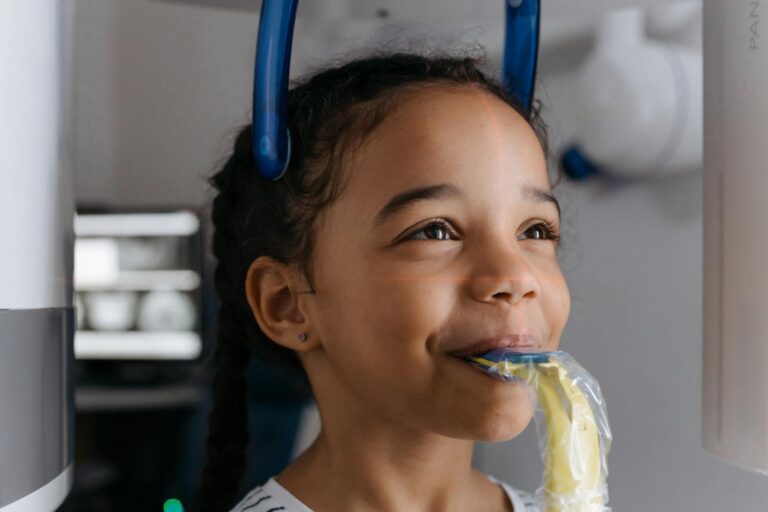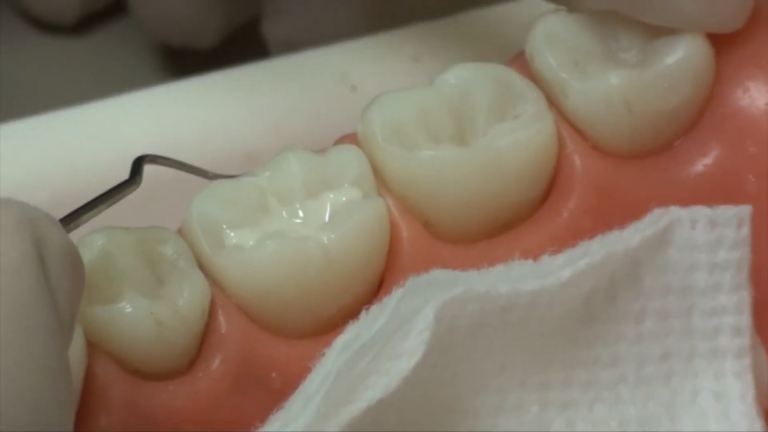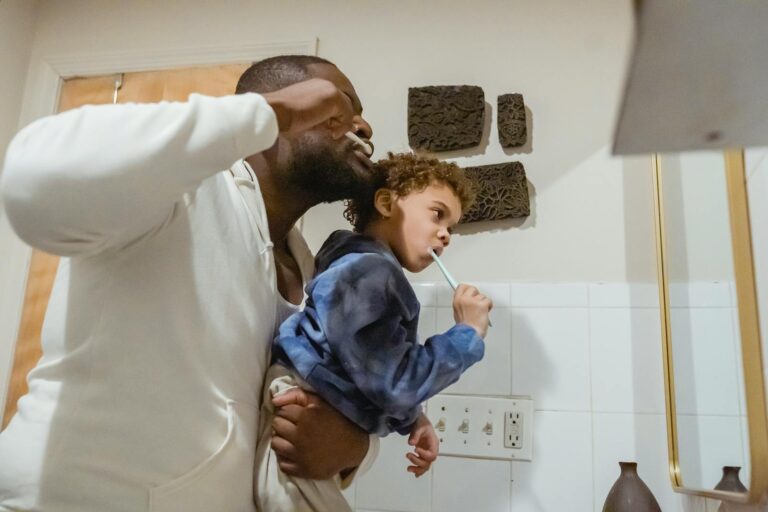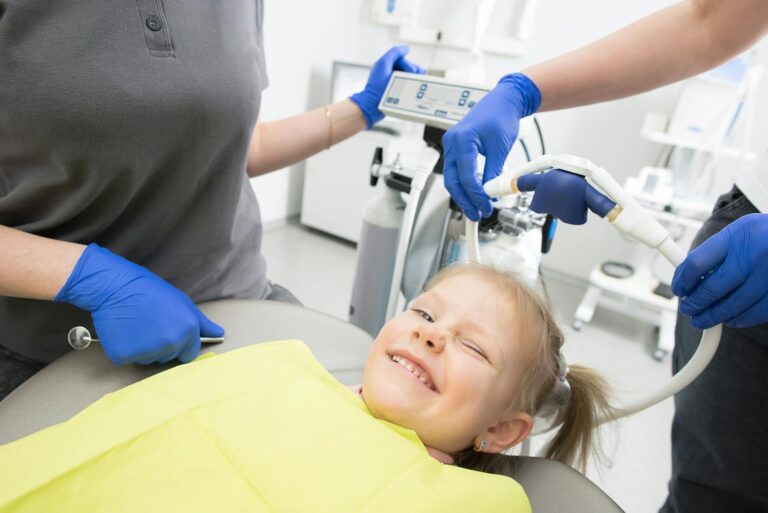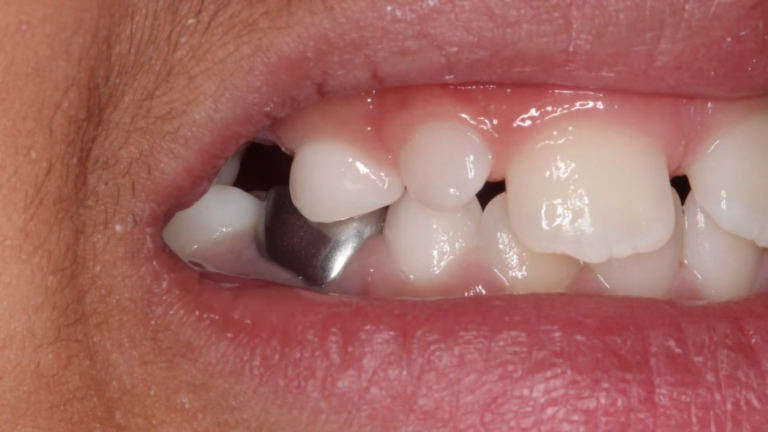Child Keeps Grinding Teeth While Sleeping – Is It Serious?
You tiptoe into your child’s room at night to check on them, only to hear a harsh, grating sound coming from their mouth. It can be startling. Why is your child grinding their teeth in their sleep? Is it normal—or something you should worry about?
This condition, known as “bruxism”, is more common in children than many parents realize. And while it’s not always a cause for immediate concern, it’s definitely worth paying attention to—especially if it becomes a nightly habit.
Let’s explore what causes teeth grinding in kids, when it’s harmless, and when it’s time to speak with a dentist.
What Is Bruxism?
Bruxism is the medical term for grinding, gnashing, or clenching the teeth. It can happen during the day (awake bruxism), but in children, it most often occurs during sleep (sleep bruxism). Some kids grind their teeth occasionally without even noticing. Others do it more frequently and loudly—sometimes enough to wake up a sibling in the same room.
Teeth grinding is most common between the ages of 3 and 10 and often fades on its own by the time a child enters their teenage years.
What causes children to grind their teeth?
There’s no single cause of bruxism in children. In fact, it’s often the result of a combination of factors:
Tooth Development or Misalignment
One of the most common—and often overlooked—reasons children grind their teeth at night is related to the natural changes happening in their mouths. During the early years, a child’s teeth are constantly evolving. Baby teeth are erupting, falling out, and making way for permanent teeth, all while the jaw is growing and adjusting to accommodate them.
This period of dental transition can lead to temporary misalignment, where the upper and lower teeth don’t quite fit together properly. The brain may perceive this imperfect bite as something that needs to be “corrected,” and the body responds instinctively—by grinding the teeth together during sleep.
In other cases, children may simply be exploring or adjusting to the new feeling of teeth in their mouths. Much like how they explore the world with their hands, grinding might be their way of figuring out how their bite works, especially during times when new molars are erupting or baby teeth are loose.
Grinding related to tooth eruption is usually not intentional and tends to decrease as the mouth becomes more stable and balanced. However, if your child has a noticeable overbite, underbite, or crossbite, the misalignment may continue to cause discomfort, leading to longer-lasting bruxism.
That’s why it’s important for a dentist to regularly evaluate your child’s bite development. If the grinding is persistent, a dentist can determine whether it’s simply part of a normal phase or a sign that the teeth aren’t aligning properly—and may recommend early orthodontic guidance if needed.
In most cases, this type of grinding is temporary and harmless. But understanding the connection between tooth development and grinding helps you respond with awareness rather than worry.
Stress or Anxiety
While we often think of stress and anxiety as adult concerns, the truth is that children—especially school-age kids—can also experience emotional tension. And because they may not yet have the vocabulary or emotional awareness to talk about how they feel, that stress often shows up in more subtle, physical ways—such as teeth grinding during sleep.
Children are sensitive to changes in their environment, even if they don’t fully understand what’s happening. A new school year, academic pressure, social challenges, a recent move, changes in family dynamics, or even disruptions to their daily routine can trigger internal anxiety. Instead of expressing these feelings out loud, the body may release this tension during sleep, causing the jaw muscles to clench or grind involuntarily.
This kind of stress-related bruxism tends to be more common in children who:
- Are naturally more anxious or perfectionistic
- Have trouble winding down before bed
- Worry about school or friendships
- Are adjusting to major life changes (like divorce, relocation, or the arrival of a new sibling)
- Internalize emotions rather than express them
Because children often don’t make the connection between their emotions and their physical habits, parents may be the first to notice the signs—like grinding sounds at night, reports of headaches in the morning, or complaints of jaw or facial soreness.
What can parents do?
- Create a consistent, calming bedtime routine: Gentle structure at the end of the day can help reduce anxiety. Try reading together, taking a warm bath, or doing quiet breathing exercises before bed.
- Open the door to conversation: Ask open-ended questions like, “How are you feeling about school lately?” or “Did anything make you feel nervous today?” Give your child space to share without judgment.
- Watch for other signs of stress: Teeth grinding might be just one symptom. Mood swings, changes in appetite, restlessness, or sleep disturbances can also point to emotional stress.
- Speak with a pediatric dentist or pediatrician: If you suspect emotional tension is behind your child’s bruxism, your healthcare provider can help determine whether it’s behavioral or if further support—such as counseling or behavioral therapy—might be helpful.
Stress is a normal part of growing up, but how it’s expressed can vary from child to child. Understanding that nighttime teeth grinding may be your child’s silent way of coping allows you to respond with empathy, reassurance, and the right tools to help them feel safe and supported.
Response to Discomfort
For many children, nighttime teeth grinding isn’t just a habit—it can be a subconscious response to physical discomfort. When something in the body doesn’t feel quite right, particularly in the head, face, or jaw region, a child’s nervous system may react by clenching or grinding the teeth during sleep as a form of self-soothing.
Common sources of discomfort that may trigger grinding include:
- Ear infections or earaches: The proximity of the jaw joint (TMJ) to the ear canal means that pain in one area can easily affect the other. Grinding may provide temporary sensory relief, similar to how a child might rock or hum when upset.
- Teething pain: For toddlers and preschoolers, new teeth pushing through the gums—especially molars—can cause pressure and irritation. Grinding may feel like a way to “massage” or relieve that sensation.
- Sinus congestion or pressure: When a child has a cold, allergies, or sinus inflammation, the buildup of pressure around the cheeks, forehead, and nasal passages can cause overall facial tension. Grinding the teeth may be an unconscious way to manage that pressure.
In all of these cases, the grinding is not intentional—it’s the body’s natural way of dealing with discomfort during sleep, when the child has no conscious control over their movements.
How can parents help?
- Look for signs of underlying discomfort: If your child is also tugging at their ears, drooling more than usual, experiencing a runny nose, or complaining of headaches or jaw pain, it may be linked to teething, sinus issues, or an ear infection.
- Address the root cause: Treating the underlying issue—such as using pain relief for teething, managing allergies with a pediatrician’s guidance, or seeking medical care for ear infections—can often reduce or eliminate the grinding altogether.
- Use soothing techniques: Warm compresses on the jaw, saline nasal sprays, or chilled teething rings can help relieve facial pressure or gum pain, which may help your child sleep more comfortably.
- Monitor patterns and talk to your child’s healthcare provider: If grinding continues night after night, and especially if it’s combined with signs of physical discomfort, it’s a good idea to consult your pediatrician or dentist. They can help identify the root cause and recommend appropriate treatment or further evaluation if needed.
Grinding caused by discomfort is often temporary and resolves once the pain or pressure subsides. By paying close attention to your child’s symptoms and offering relief early on, you can help minimize both the grinding and its impact on their growing smile.
Sleep-Related Issues
In some cases, nighttime teeth grinding—also known as sleep bruxism—may not be just a standalone habit. Instead, it can be a symptom of an underlying sleep-related breathing disorder, such as obstructive sleep apnea (OSA) or chronic snoring.
When a child experiences disrupted breathing during sleep—whether due to partial airway obstruction, enlarged tonsils or adenoids, or nasal congestion—the body may react by activating certain muscles in an attempt to reopen the airway. One of those reflexive muscle activities is clenching or grinding of the jaw. Essentially, grinding may serve as the body’s unconscious attempt to maintain airflow and stabilize the airway during periods of reduced oxygen.
Children with sleep-disordered breathing often grind their teeth without waking up, and they may not show obvious signs of distress during the night. However, parents might notice other red flags, such as:
- Loud or frequent snoring
- Pauses in breathing or gasping during sleep
- Mouth breathing at night or during the day
- Restless sleep or frequent waking
- Bedwetting beyond the typical age
- Daytime fatigue, irritability, or trouble focusing at school
In these cases, the teeth grinding is not merely a behavioral habit but a possible physiological response to oxygen deprivation or poor-quality sleep.
What parents can do:
- Observe your child’s sleep: Spend a few minutes watching your child sleep. Note any unusual breathing patterns, such as pauses, mouth breathing, or snoring.
- Record concerns and patterns: Keep a simple sleep journal noting how often you hear grinding, whether snoring is present, and how your child behaves during the day (e.g., tiredness, mood swings, attention difficulties).
- Consult with a pediatric dentist or physician: Share your observations during your child’s next dental or medical visit. If a sleep-related breathing disorder is suspected, your provider may refer you to a sleep specialist or ENT for further evaluation.
- Consider sleep studies or imaging if recommended: In some cases, a sleep study (polysomnography) may be needed to diagnose sleep apnea and assess the severity.
Addressing the underlying sleep disorder often leads to a reduction or complete resolution of the teeth grinding. Treatments may range from lifestyle adjustments (e.g., allergy management, weight regulation) to medical interventions like tonsil or adenoid removal in severe cases.
Recognizing the connection between sleep-disordered breathing and bruxism empowers parents to look beyond the symptom—and address the root cause. Not only does this support better dental health, but it also improves your child’s overall sleep quality, behavior, and daily well-being.
Hyperactivity or Neurological Conditions
Bruxism—particularly during sleep—is observed more frequently in children with certain behavioral or neurological conditions, such as Attention-Deficit/Hyperactivity Disorder (ADHD), Autism Spectrum Disorder (ASD), and Sensory Processing Disorders (SPD). While the exact cause is not fully understood, research suggests that neurological regulation, sensory sensitivities, and heightened arousal levels during sleep may all contribute to the increased incidence of grinding in these children.
Children with ADHD, for example, often have difficulty relaxing their bodies and minds, even during sleep. Their nervous systems may remain in a more heightened or “alert” state, leading to more frequent muscle activity—including involuntary jaw movements like clenching or grinding. This activity may occur more often during light sleep stages, which children with ADHD may cycle through more frequently.
Similarly, children with sensory processing challenges may experience sleep differently from neurotypical children. A child who is hypersensitive to certain textures, sounds, or body sensations may also be more reactive to internal changes—like the shifting of teeth, growing pains, or jaw tension—which can trigger grinding as a physical response.
Bruxism in these populations may also be compounded by:
- Difficulty with self-regulation
- Increased levels of daytime anxiety or overstimulation
- Medication side effects (especially from stimulants commonly prescribed for ADHD)
- Irregular sleep patterns or poor-quality sleep
What parents can do:
- Mention the grinding to your child’s healthcare team: Whether your child is already receiving support from a pediatrician, neurologist, psychologist, or occupational therapist, it’s helpful to include sleep bruxism in the conversation. It could offer valuable insight into their overall regulation and sleep quality.
- Work with your pediatric dentist: Dentists familiar with neurodiverse children can monitor for tooth wear, jaw tension, or pain, and may recommend preventive tools like nightguards—if appropriate for the child’s age and comfort level.
- Establish predictable bedtime routines: Children with ADHD or sensory sensitivities often benefit from consistent, calming transitions into sleep. Low-light environments, weighted blankets, soft music, or guided relaxation exercises may help.
- Track changes in behavior, sleep, or medication: If teeth grinding seems to start or intensify alongside a new routine or prescription, make note of the timing and discuss it with your healthcare provider.
Be patient and supportive: Bruxism related to neurological conditions may not resolve quickly, but with the right interdisciplinary support, you can help minimize its impact on both dental health and sleep quality.
In these cases, teeth grinding is rarely an isolated issue—it’s often part of a bigger picture that reflects how a child’s brain and body interact with the world. Understanding that connection helps parents and providers approach it with both empathy and effectiveness.
Is Teeth Grinding in Children Harmful?
In many cases, especially among toddlers and preschoolers, teeth grinding is **not serious** and will resolve without treatment. However, if it becomes severe or prolonged, it can lead to issues such as:
– Excessive wear on tooth enamel
– Tooth sensitivity or pain
– Headaches or jaw soreness upon waking
– Damage to fillings or dental work
– TMJ (temporomandibular joint) strain in older children
Because children often aren’t aware they’re grinding their teeth, you may only notice it by sound, or through signs like flattened teeth or complaints of jaw pain in the morning.
What Should Parents Do?
Here are a few steps you can take if you notice your child grinding their teeth:
- Stay calm and observe: Occasional grinding is very common and usually doesn’t require immediate intervention. Keep a sleep diary if needed to track how often it occurs.
- Discuss it at your child’s next dental visit: Your pediatric dentist will check for signs of wear or stress on the teeth. In some cases, they may recommend a custom nightguard for older children to protect permanent teeth.
- Create a calming bedtime routine: Help reduce nighttime stress by keeping a consistent and soothing evening schedule—warm bath, gentle story, soft music. Address any emotional concerns your child might be carrying into sleep.
- Check for airway issues: If your child snores, breathes through their mouth, or seems overly tired during the day, talk to your dentist or pediatrician about evaluating their airway health. Enlarged tonsils, allergies, or other breathing-related issues can be connected to bruxism.
Avoid caffeine and screen time before bed: Stimulants—even in small amounts from chocolate or soda—can increase restlessness and contribute to grinding.
When Should You Seek Professional Help for Your Child’s Teeth Grinding?
While occasional teeth grinding is often a harmless and temporary phase—especially in young children—there are certain signs that indicate it’s time to involve a healthcare professional. Understanding when to seek help can prevent more serious dental problems and ensure your child’s overall well-being.
You should contact your child’s pediatric dentist or pediatrician if any of the following apply:
- The grinding is frequent, loud, or intense
If you regularly hear your child grinding their teeth at night—especially if the sound is loud enough to wake others—it may be a sign that the grinding is more than just a passing habit. Persistent grinding can place excess stress on the teeth and jaw joints over time.
- Your child complains of jaw pain, facial soreness, or morning headaches
Grinding and clenching can overwork the muscles around the jaw and temples. If your child wakes up complaining of pain in these areas, or experiences tension headaches in the morning, this may be a symptom of bruxism-related strain that should be addressed.
- You notice visible wear, flattening, or damage to their teeth
Look closely at your child’s teeth—especially the biting surfaces. If they appear unusually flat, chipped, or worn down, it may indicate that nighttime grinding has already begun to affect their enamel. Over time, this can lead to increased sensitivity, fractures, or even cavities.
- Grinding continues beyond the typical age range
Bruxism is most common in children between the ages of 3 and 10. If the grinding persists into the pre-teen or teenage years without improvement, it may be time for a more thorough evaluation. Prolonged grinding can signal an underlying bite issue, stress pattern, or airway concern that needs professional attention.
- Your child has other sleep disturbances
If teeth grinding is accompanied by snoring, frequent waking, mouth breathing, or pauses in breathing during sleep, it could point to an undiagnosed sleep disorder such as obstructive sleep apnea. In these cases, grinding may be a symptom of disrupted breathing and should be evaluated by both a pediatrician and a dentist familiar with sleep-related issues.
Early evaluation can make a big difference in managing bruxism effectively. Your child’s dentist may suggest simple monitoring, recommend a custom nightguard (for older children), or refer you to a sleep specialist or ENT if breathing concerns are suspected.
By being proactive and observant, you’re not only protecting your child’s teeth—you’re supporting better sleep, comfort, and long-term oral health.
Final Thoughts
Teeth grinding during sleep can be unsettling to hear, but in most cases, it’s a phase that comes and goes—especially in younger children. Still, keeping an eye on it and having regular dental checkups ensures that if bruxism does become a problem, you’ll be able to catch and manage it early.
The sound might be sharp, but your response doesn’t have to be. With gentle observation and the support of your dental care team, your child can rest—and smile—comfortably.

